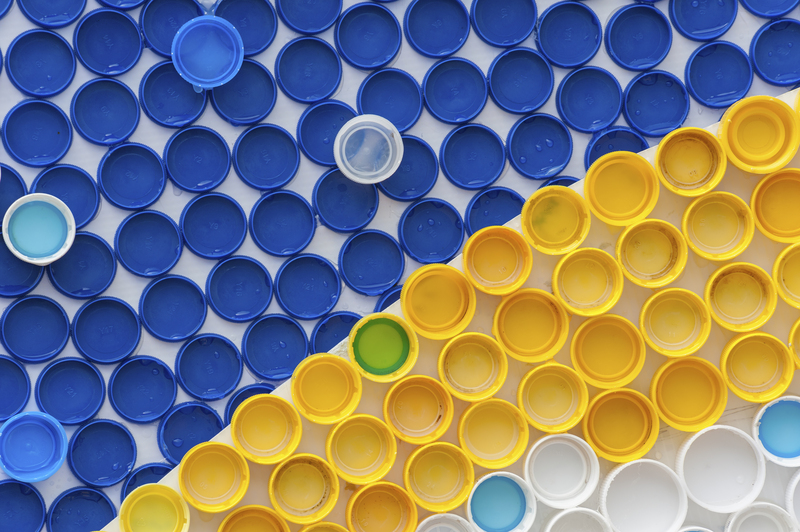How Clutter Removal Can Improve Your Well-Being and Home Life
Are you feeling stressed, overwhelmed, or unproductive at home? The culprit may not be your job or family--but the clutter surrounding you. Clutter removal is more than a tidying trend; it's a scientifically backed way to improve your mental health, physical environment, and daily life. In this article, we'll explore the enduring benefits of decluttering, why clutter builds up, and actionable strategies for transforming your home-- and your well-being.

Understanding Clutter: More Than Just a Visual Mess
Clutter comprises any items that crowd your living or working space. This may include old clothes, piles of paper, disorganized kitchen gadgets, kids' toys, or that junk drawer stuffed to overflowing. While everyone has clutter from time to time, chronic disarray can sabotage your quality of life.
Why Do We Accumulate Clutter?
- Sentimental value: Holding onto objects for their memories or emotional ties.
- Perceived usefulness: "I might need this someday!"
- Impulse purchases: Buying without a plan and accumulating unnecessary items.
- Lack of time: Busy schedules prevent regular organization and removal.
- Disorganization: No designated place for belongings, leading to piles and chaos.
Over time, this build-up becomes more than an eyesore; it can directly hinder your happiness, family relationships, and health.
The Psychological Impact of Clutter
The state of your environment is intricately linked to your state of mind. Research shows that people living in cluttered homes report higher levels of stress, anxiety, and even depression. Here's how clutter removal can dramatically improve your well-being:
Reduced Stress and Anxiety
Excessive possessions can overload your mind. The mere sight of chaos and disorganization sends signals of unfinished tasks, making it hard to relax. Decluttering, in contrast, reduces these mental triggers, giving you a calm, soothing space.
- Harvard University research found that visual clutter increases cognitive overload and distractibility.
- According to UCLA's Center on Everyday Lives and Families, women in cluttered environments had higher levels of the stress hormone cortisol.
- Streamlined spaces are strongly associated with happiness and serenity.
Boosted Productivity and Creativity
A tidy, minimalist space isn't just for style--a well-organized room can supercharge your focus. By removing clutter, you remove distractions, paving the way for:
- Improved concentration on tasks
- Easier access to important documents and belongings
- Creative inspiration from spaces that feel open and fresh
As a result, whether you work from home, tackle a hobby, or help your kids with homework, clutter-free environments directly enhance your performance.
Improved Sleep Quality
Do you ever climb into bed only to see heaps of clothes and undone chores? Studies confirm that a messy bedroom is linked to disrupted sleep and insomnia. Removing clutter from your sleeping area sets the stage for peaceful rest--and waking up refreshed.
Clutter and Family Dynamics: Creating a Happier Home Life
Overcrowded spaces don't just affect your mind--they impact your relationships. Here's how decluttering your home can improve home life:
- Reduces conflicts over lost or misplaced items.
- Fosters teamwork among family members.
- Promotes a sense of shared responsibility and pride.
- Encourages children to develop organizing skills and accountability.
A clutter-free home often means more time for meaningful connections and less time fighting about chores or searching for things.
Decluttering Sets a Positive Example
Children learn by example. Regularly removing unwanted items demonstrates responsible consumption, environmental stewardship, and the value of a well-ordered home.
Physical Health Benefits of Removing Clutter
Clutter isn't just a mental burden--it can be a physical hazard! Here's why clutter removal is essential for a healthier home:
- Reduces allergens: Piles of stuff collect dust, pet dander, and mold, aggravating allergies and asthma.
- Prevents accidents: Decluttered spaces eliminate tripping hazards and make it easier to navigate, especially for children or elderly family members.
- Promotes cleanliness: Fewer items mean less to clean, making routine upkeep faster and more thorough.
Clutter and Nutrition
Did you know? A tidy kitchen can prompt healthier eating. A 2016 Cornell University study showed that people in organized kitchens made better food choices, while those in chaotic environments were more prone to unhealthy snacking. Decluttering your pantry and counters can directly support your wellness goals.
How Clutter Drains Your Time, Energy, and Money
Time Lost in the Mess
How many minutes each day do you spend searching for keys, remote controls, or critical paperwork? The average person loses up to an hour per day due to disorganization--time better spent on enjoyment or productivity.
The Hidden Costs of Clutter
- Duplicate purchases: Buying things you already own, but can't find.
- Missed bills: Late fees from misplaced documents.
- Wasted space: Paying for extra storage you don't need.
A regular clutter removal routine helps you reclaim both time and money, improving your life with less effort than you might think.
Step-By-Step Clutter Removal Strategies for a Healthier Home
Ready to reclaim your space and well-being? Here's a proven path to decluttering success:
1. Start Small--But Start Now
Don't attempt to overhaul your entire home in a day. Begin with a single drawer, shelf, or closet. Seeing one area transformed is often all the motivation you need to keep going.
2. Sort, Donate, Recycle, or Dispose
- Keep: Items used regularly or those with strong positive significance.
- Donate: Gently used possessions that no longer serve you but could benefit someone else.
- Recycle: Paper, plastics, electronics, and textiles where possible.
- Dispose: Broken, outdated, or unusable items.
3. Use the "One-Year" Rule
If you haven't used an item in the past year--consider letting it go. Exceptions may include special occasion items or tools you genuinely need.
4. Create Designated Storage Solutions
Once you've pared down, invest in smart storage systems: baskets, shelving, drawer organizers, or closet solutions. Clearly labeled and accessible, these make maintaining a clutter-free home easy.
5. Set Up Regular Decluttering Routines
- Allocate 10 minutes daily for quick tidying.
- Plan for larger decluttering sessions each month or season.
- Involve the whole family for shared task ownership.
6. Become a Mindful Consumer
Before each new purchase, ask yourself: Do I really need this? Practicing mindful acquisition prevents the future build-up of unnecessary clutter.
Modern Tools and Resources for Clutter Removal
Technology and professional services can make decluttering easier than ever.
- Apps: Use organizing apps like Sortly, Tody, or Keepy for visual inventories and reminders.
- Charity pick-up services: Some charities offer free pickup of donations at your doorstep.
- Professional organizers: If you feel overwhelmed, certified experts can create a clutter removal plan tailored to your needs.
Decluttering for Special Populations
Families with Children
Toys, art projects, and school supplies can quickly take over. Teach your children to sort and donate items. Make cleanup a daily habit, and use bins or color-coded baskets for easy organizing.
Seniors or Mobility Impaired
Clutter is a safety hazard for those with limited mobility. Keep walkways clear and important items within easy reach. Consider asking family or friends for assistance or hiring help for larger tasks.
Hoarding Disorders
For some, clutter is tied to complex emotional or psychological issues. If you or a loved one struggle with hoarding, consult with a mental health professional alongside decluttering efforts.
Environmental and Social Benefits of Decluttering
Clutter removal doesn't just benefit you and your family. Decluttering helps the wider community and planet:
- Reduces landfill waste by promoting donations and recycling.
- Supports charitable organizations with gently used items that empower others.
- Lowers your carbon footprint by generating less waste and choosing mindful consumption.

Frequently Asked Questions about Clutter Removal
How often should I declutter my home?
Aim for brief decluttering every week, and a thorough session in each season. Major life changes--like moving, new family members, or downsizing--are also prime times.
What should I do with sentimental items?
Keep a select few for display or memory boxes. Digitize old photos or letters to save space. If you're uncertain, store items in a designated container and review them after a few months.
How do I motivate reluctant family members to help?
Set a positive tone, and start with your own belongings. Involve everyone in decision-making and celebrate successes together. Emphasize the rewards: more space, less stress, and a happier home.
Conclusion: Reap the Rewards of Clutter Removal
Clutter may seem harmless, but its impact is profound. Regular clutter removal enhances your well-being, increases productivity, improves family dynamics, and protects your health. With practical steps--starting small, staying consistent, and embracing mindful ownership--you can create a more joyful, organized home.
Remember, a tidy home isn't about perfection. It's about creating a comfortable, functional, and uplifting space that supports your goals and happiness. Start your decluttering journey today and experience the life-changing benefits for both your home and well-being.
- Less mess. Less stress. More life.
- Your pathway to well-being starts with clutter removal.
